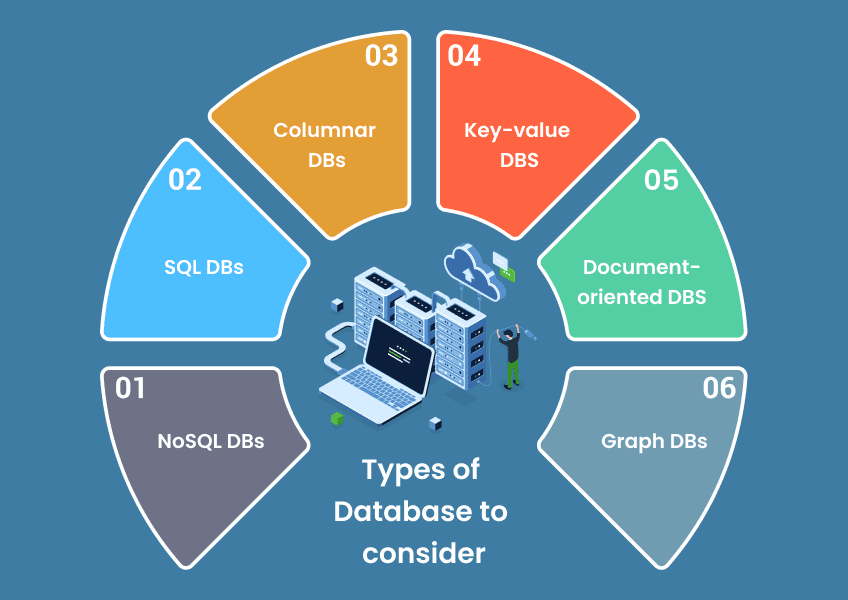Business
.NET Development: Choosing the Right Database for Your Website

In the ever-evolving landscape of web development, choosing the right database for your .NET website is a critical decision that can significantly impact its performance, scalability, and overall user experience. With the multitude of database options available, ranging from traditional relational databases to modern NoSQL databases, it can be perplexing for developers to make an informed choice. In this article, we will explore the factors to consider when selecting a database for your .NET development project, ensuring your website operates seamlessly and efficiently.
Understanding the Basics: .NET Development and Databases
Before delving into the specifics of choosing a database, it’s essential to grasp the fundamental relationship between .NET development and databases. .NET is a robust and versatile framework developed by Microsoft, widely used for creating dynamic web applications, desktop software, and cloud-based services. When it comes to databases, .NET developers often encounter two primary categories: relational databases and NoSQL databases.
Relational Databases: Structured Data Management
Relational databases, such as SQL Server, MySQL, and PostgreSQL, organize data into structured tables with predefined schemas. These databases excel in handling complex transactions and ensuring data integrity. For .NET websites requiring transactions, relational databases are a reliable choice.
NoSQL Databases: Unstructured Data Flexibility
On the other hand, NoSQL databases like MongoDB, Cassandra, and Redis offer flexibility with unstructured or semi-structured data. They are ideal for .NET websites dealing with large volumes of unstructured data, enabling seamless scalability and high performance.
Factors Influencing Database Selection
Choosing the right database involves considering various factors, each playing a pivotal role in the website’s functionality and user experience.
1. Scalability and Performance
Scalability is a crucial consideration, especially for websites expecting high traffic. Relational databases can handle vertical scaling, where you enhance the server’s power. NoSQL databases, however, offer horizontal scalability, allowing you to distribute data across multiple servers, ensuring seamless performance even under heavy loads.
2. Data Structure and Complexity
Consider the complexity of your data. If your .NET website deals with structured data and requires complex transactions, a relational database is preferable. For projects involving diverse and unstructured data, a NoSQL database might be the right choice.
3. Flexibility and Schema Design
NoSQL databases provide schema flexibility, allowing developers to modify data structures without disrupting existing processes. Relational databases, on the other hand, have rigid schemas. If your project requires constant changes, a NoSQL database accommodates these alterations effortlessly.
4. Community Support and Documentation
The strength of the developer community and the availability of comprehensive documentation are vital. Relational databases often have extensive support due to their long-standing presence. NoSQL databases, though newer, have thriving communities contributing to their rapid evolution.
Hire .NET Developers: Ensuring Expertise
While selecting the right database is crucial, having skilled developers adept in .NET is equally essential. Hiring dedicated .NET developers with expertise in various databases ensures your project is in capable hands. These professionals understand the nuances of different databases, tailoring their choices to match your project’s specific needs.
In conclusion, the choice between relational and NoSQL databases for your .NET development project depends on the project’s requirements, scalability needs, data complexity, and flexibility demands. By weighing these factors and considering expert .NET developers, you pave the way for a robust, high-performing website that meets your users’ expectations.
Conclusion
selecting the appropriate database for your .NET development project is pivotal for its success. Whether you opt for SQL Server, MySQL, PostgreSQL, or other options, understanding your project’s requirements is essential. Each database has its strengths, so aligning those with your specific needs is crucial. To ensure a seamless integration and expert guidance, consider hiring skilled .NET developers. Their expertise can streamline the database selection process, optimize performance, and enhance overall user experience. With the right database and talented professionals, your website can achieve optimal functionality and efficiency, providing users with a top-notch experience.
Frequently Asked Questions (FAQs)
1: Why is choosing the right database important for .NET development?
Selecting the appropriate database ensures optimal performance, scalability, and data management for .NET websites, enhancing user experience and functionality.
2: Can I switch databases in the middle of a .NET development project?
While it’s possible, switching databases mid-project can be complex and time-consuming. It’s advisable to choose the right database from the project’s outset.
3: What are some popular NoSQL databases compatible with .NET development?
Popular NoSQL databases compatible with .NET include MongoDB, Cassandra, Redis, and RavenDB, each offering unique features catering to different project requirements.
4: How can I find skilled .NET developers proficient in various databases?
You can find skilled .NET developers through reputable development agencies, freelancing platforms, or professional networking sites. Look for developers with a diverse portfolio and relevant experience.
5: Where can I learn more about .NET development and database selection?
For in-depth knowledge about .NET development and database selection, consider exploring online developer communities, forums, and official documentation provided by Microsoft and database vendors.


